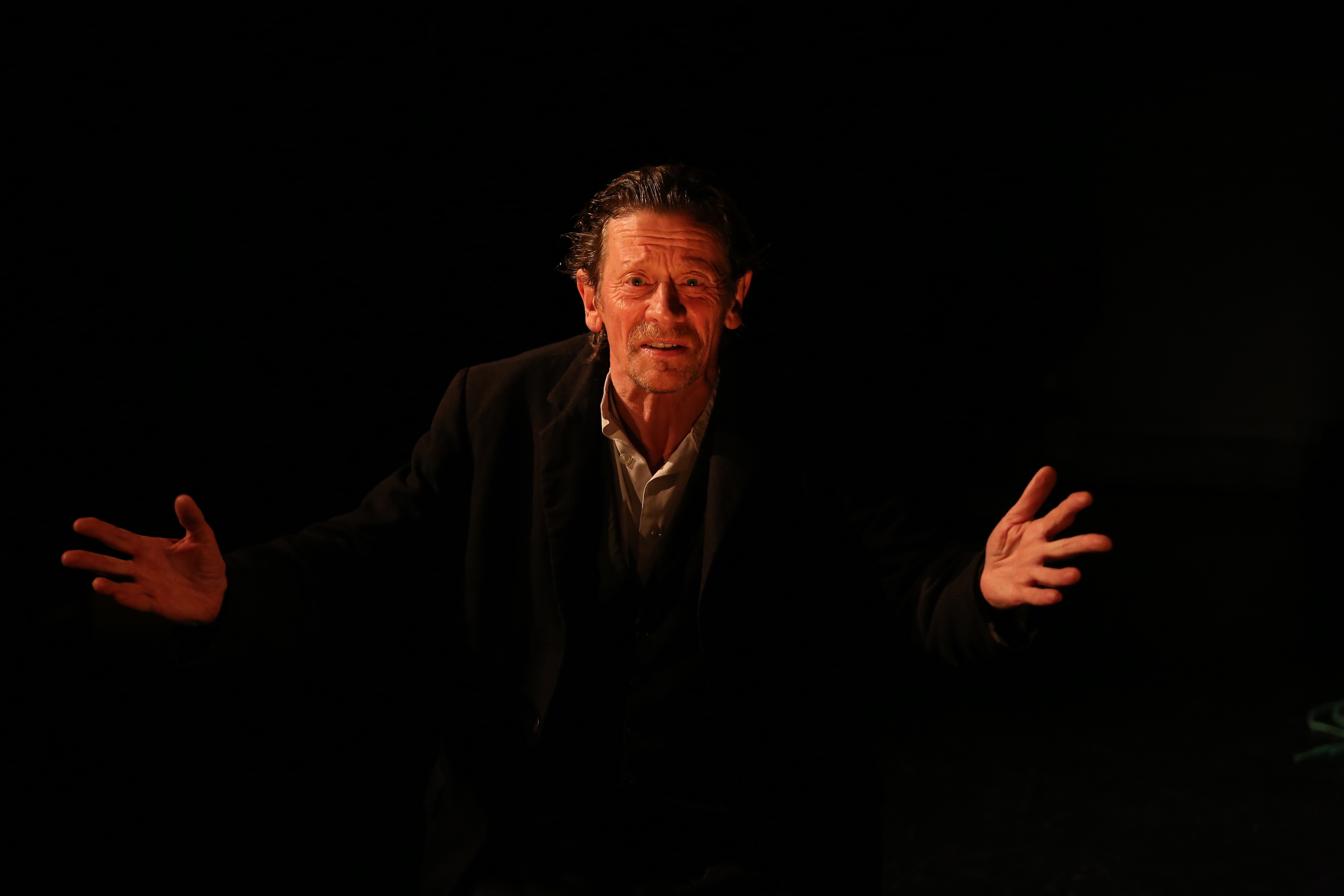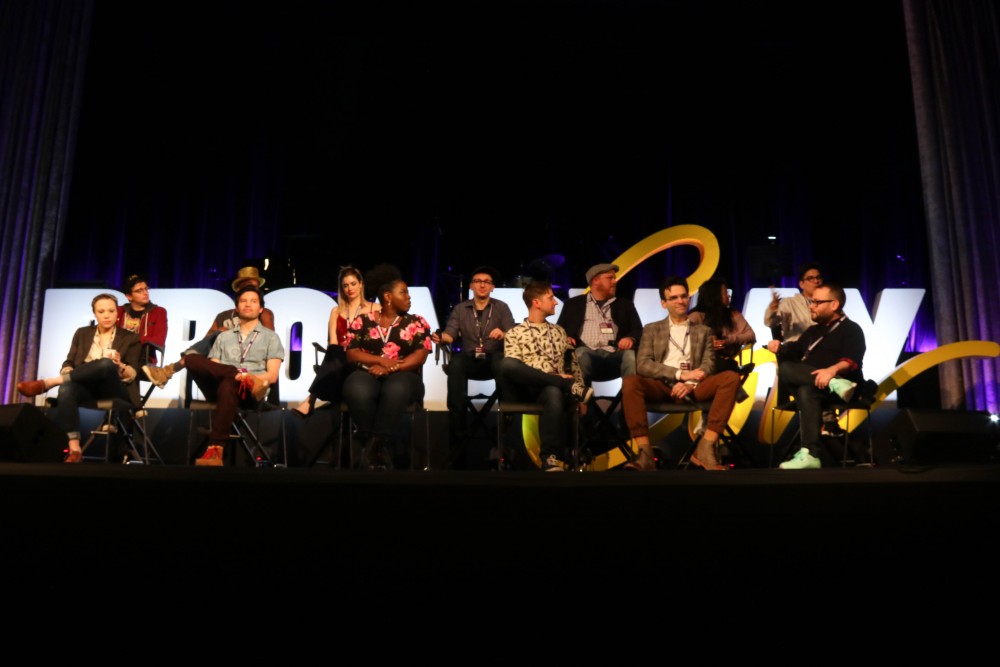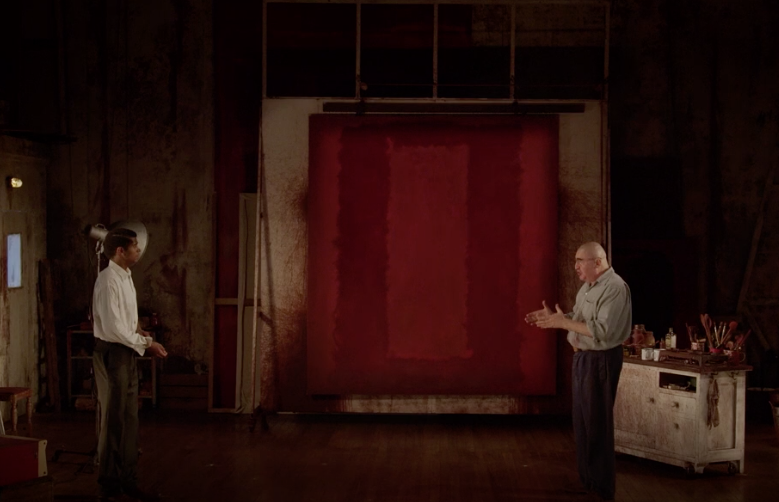by Carol Rocamora . . .
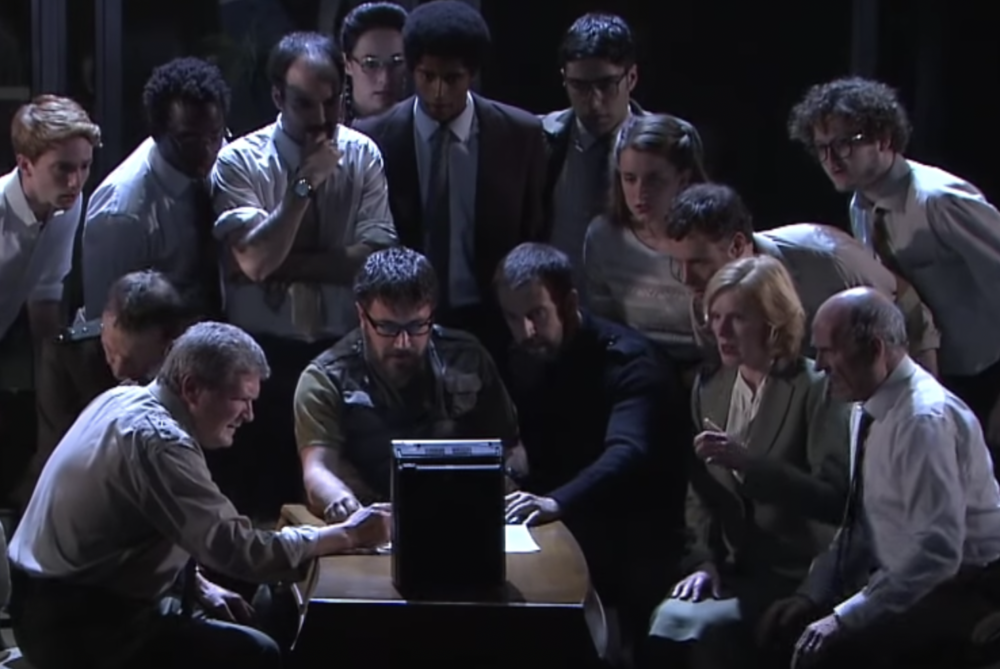
“Beware the Greeks, bearing gifts…”
You’d better take that warning seriously – especially in the theatre! Those ancient Greek tragedies bring earth-shattering new insights in times of political crisis – especially now.
We’re hearing lot about “the rule of law” these days. But is there something higher? That’s what Sophocles asks in his timeless tragedy Antigone, and that’s why the 2012 Royal National Theatre’s streaming of Polly Findlay’s modern dress revival couldn’t be more urgent.


You know the ancient story, of course, of the tragic double fratricide committed by the sons of the ill-fated Oedipus. Well, it seems as if their Uncle Creon favors Eteocles over his other nephew, the disloyal Polynices. Now that he’s King, Creon decrees that Eteocles receive an honorable burial, whereas Polynices’s body must lie rotting on the ground until “the kites and vultures pick him to pieces.” To make matters worse, Creon adds: “The punishment of anyone who disobeys orders is public stoning to death.”
However, that new law doesn’t sit very well with Polynices’s horrified sisters, Antigone and Ismene, to say the least. Enraged, Antigone announces that she’s going to bury Polynices according to sacred custom (not Creon’s decree). “The laws we break are men’s laws”, she tells her frightened sister, “not the laws of the gods.” The brave Antigone is fully prepared to face Creon’s consequences.


Meanwhile, Antigone also happens to be engaged to Creon’s son, Haemon, who pleads with his father in vain to rescind his draconian decree. Even Teiresias (the blind seer) makes an 11th hour appearance, prophesizing doom unless Creon listens to his son and colleagues and changes his mind. But to no avail. So the story plunges into an abyss of horror (Creon seals Antigone in a cave, Antigone hangs herself, Haemon commits suicide, and so does his mother Eurydice, Creon’s wife). Devastated (who wouldn’t be?), Creon ultimately takes responsibility, but too late.
Findlay’s smart production reminds us how well Greek tragedies translate into modern settings (even more readily than Shakespeare’s, in my opinion). The action takes place in a huge government compound/war room (designed by Soutra Gilmour), with bustling aides doubling effectively as the Greek chorus, offering the best lines in Don Taylor’s adaptation. Jodie Whittaker gives a fiercely feminist performance opposite Christopher Eccleston’s towering, tyrannical Creon. Luke Newberry is touching as the son Haemon, who bravely stands up to his cruel father. Jamie Ballard’s Teiresias is so convincing, that when he cries: “Are there any wise men left, anywhere?” – I wanted to shout back: “No”! There’s a sensational “banquet of human blood” at the end, as prophesied by Teiresias, and delivered by the design team (with Dan Jones’s frightening sound cues.)
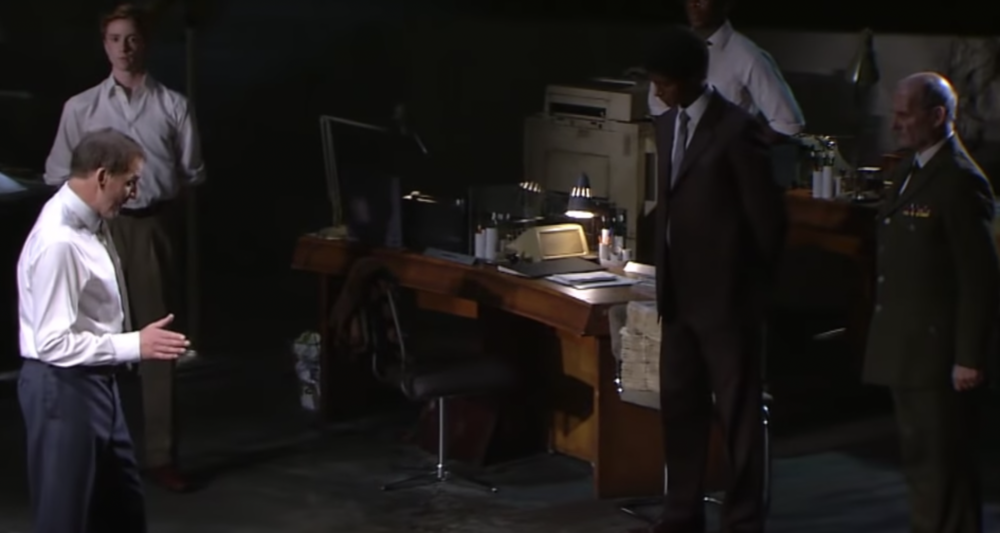

As for the question that Sophocles poses about the rule of law, Don Taylor’s adaptation offers a profound insight. “Common human decency is higher than the law,” says Antigone, higher than the gods, even. We could use a large dose of “common human decency” these days, don’t you think?
And then there are the unexpected words of a chorus member, reminding me of Hamlet’s celebrated “what a piece of a work is a man” speech to the Players: “Is there anything more wonderful on earth than the miracle of man? He has mastered the mysteries of language and thought…He has political wisdom, too, and all the practical arts of government. There is no problem he cannot master by the execution of his brain… The only thing he cannot salve or cure is his death.”
Antigone, by Sophocles, adapted by Don Taylor, directed by Polly Findlay (2012), now streaming on National Theatre At Home (ntathome.com)



